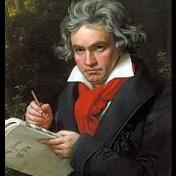Search the Community
Showing results for tags 'instrumentation'.
-
Hello, I am new to composition. Can anyone make a list of steps or concepts to learn orchestration? If this is a dumb question, I would appreciate any advice anyone has for learning orchestration. I am specifically looking to write orchestral music. Also if there are any resources or books that helped you learn orchestration, can you list some of them here?
-
- orchestration
- instrumentation
-
(and 1 more)
Tagged with:
-
Hello everybody, A few days ago, I got the idea about an app to help composers to get feedback about instrumentation (and orchestration) from musicians. The idea can be found here: We decided to try it out first on this forum by a thread. (!) To have this idea work, we need the whole community to help and play the music! A composer can post his music here, but when the music isn't performed, there is nothing useful about this topic. HOW IT WORKS What to do as a composer? If you are not sure about a short passage or a few passages in one of your compositions, you can post your score (PDF) in this topic, BUT... Make sure that you clearly tell us, which instrument part you have doubts about and where, i.e. from which bar to which bar. This topic is not meant to get free performances and audios for your music; only for feedback. What to do as a musician? First, please press the ''follow'' button at the top right of this page. When you see a post of a composer, who would like to have feedback on a piano passage and you play piano, check the score. When you check the score and you think you can play it a little bit, please practise it.* Finally record yourself playing the passage (in this case piano) and post the mp3 file here with some feedback. *You don't need to be a professional musician to be able to play passages. When the tempo is too fast for you, you can still practise it in a slower tempo and imagine a professional musician playing the music. Result The composer now has more knowledge of what is possible and what is not on the instrument. Note that there needs to be a balance between you posting scores and you posting recordings of yourself playing. If you only post scores and don't play other's music, your score will get less attention. Hopefully this works! Maarten Bauer
-
I have started a long term project related to the planets. Now, my projects are basically divided into short term and long term. Short term projects are those for which I set a deadline(or in composing competitions, deadline is already set) of 2 months or less. And then there are the long term projects for which I don't expect to finish for at least 3 months. Full string quartet would probably take 3 months for me to compose at minimum. Full Symphony is still in the 1+ years range, though I feel like I'm getting more capable of achieving it and my compositional dream, the piano concerto, with every passing month, since I compose daily and have gotten to where orchestral writing isn't so overwhelming. Anyway, back to the planets. Unlike Holst's suite The Planets, I'm doing things different in these ways: Writing in planet order, so Mercury is first and not third as in the Holst piece I'm including Earth and Pluto in my piece This is the biggest difference, my piece is based on the physical aspects of the planets, not the mythology of the gods of the same name But there are also similarities to the Holst piece, namely that it is a suite for an orchestra and that each movement has a different instrumentation. Jupiter will be the most dense in instrumentation and I think Pluto will be the most bare in instrumentation, with Neptune, Mercury, and Mars also being relatively bare in instrumentation. I'm working on the Mercury movement right now and I plan to use 2 distant keys, 4 sharps and 4 flats along with other characteristics to differentiate the hot, daytime section from the icy, nighttime section. This 2 sections of extreme contrast being unified is related to the fact that a solar day on Mercury = 2 Mercury years. Here are some characteristics that will differ between the 2 sections of the movement: Degree of rhythmic complexity -> Hot section will have more rhythmic complexity than the Icy section Instrumental density -> Not necessaraily the actual instrumentation, but the density of it will be less in the Icy section Harmonic dissonance -> Hot section will have more harmonic dissonance And here is how the instrumental density will change in the Icy section: Strings go pizzicato Piano becomes more melodically dominant(in the Hot section, it's mainly for a rhythmic and harmonic purpose) Woodwinds more dominant Possibly forgoing the horns, or at least keeping them quiet(they blend better with and provide more fullness to the woodwinds at quiet dynamics I think) And I know the glockenspiel can give an icy tone. In fact, when I do hear an icy tone in music, it's usually one of 2 instruments at high pitch, Piano or Glockenspiel(more often Piano than Glockenspiel). And I have used this high pitch piano = icy or wintery feel on multiple occasions. But should I have the glockenspiel in the Mercury movement or save it for the Saturn movement? In the Saturn movement, this appearance of the glockenspiel will represent the glistening icy beauty that is Saturn's rings. Should I save it for just that movement though? After all, some other movements will have an icy tone in part of it, namely Mercury as already stated, Mars, possibly Jupiter(if I include the Galilean moons that is), Uranus, Neptune, and Pluto. On the other hand, with possibly the exception of Pluto, it isn't very glistening like it is with Saturn's rings, just cold. And in Mercury in particular, I'm wondering if the addition of glockenspiel will bring the extreme contrast too far for it to sound unified in any sense. And yet, I feel like having Saturn be the only movement with glockenspiel in its orchestra is somehow wrong when 6, possibly 7 out of 9 movements will have an icy tone in at least part of it(only movements guaranteed to not have this icy tone are Venus, which will sound like Hell has ensued, and Earth, in which I plan on striking that perfect balance to get across that it is the only planet with life as we know it). So, what should I do? Should I have it in Mercury? Introduce it in Mars or Jupiter? Save it for Saturn and possibly Pluto?
- 6 replies
-
- orchestral
- instrumentation
-
(and 1 more)
Tagged with:
-
Hello composers! This will be the place where I will share one classical composition including saxophones per week. The videos are not mine! As a saxophonist, I notice that still many composers do not use the saxophone in classical music. The most important reason for this is because they do not know how to apply the instrument. I often get the question if I could give some study advices for saxophone writing. My answer is always that one has to listen and study the works of our predecessors. This topic is meant to inspire and stimulate composers to write more music for the saxophones. Contents Graham Lynch - Unreal Promenade for Saxophone Ensemble (2015). Jean Françaix - Cinq Danses Exotiques for Alto Saxophone and Piano (1961). Georges Bizet - Suite No.1 from the drama l'Arlésienne (1872). Claude Debussy - Rhapsodie for Saxophone and Orchestra (1901 - 1911). Slava Kazykin - ''Bachiazzola'' for Saxophone Quartet (n.d.). Mark Watters - Rhapsody for Baritone Saxophone and Wind Orchestra (2001). Iannis Xenakis - XAS (1987). Mozart / Arr. Niels Bijl - String Quartet No.15 in D minor, Kv. 421a. Paul Creston - Sonata for Alto Saxophone and Piano, Op.19 (1939). Erwin Schulhoff - Hot Sonata (1930). Carter Pann - The Mechanics for Saxophone Quartet (2013). #1 Graham Lynch - Unreal Promenade for Saxophone Ensemble (2015). More information in the description of the video. Best wishes, Maarten Bauer
- 38 replies
-
- masterclass
- bauer
-
(and 5 more)
Tagged with:
-
Hello everybody, On FaceBook I have seen an invitation to write for the carillon of the Domtoren (church) in Utrecht. I never came on the idea to write for this instrument until now. The problem is that I don't know how to compose for the carillon. I cannot find much information about the possibilities and limitations of the carillon, so I would really appreciate it if you could tell me more about it! Thank you, Maarten
- 2 replies
-
- carillon
- instrumentation
-
(and 4 more)
Tagged with:
-
Hey everybody! Just wondering if any of you know of any pieces featuring harp and celeste together? I know of several orchestral scores with this instrumentation but I'm really interested in finding some smaller chamber works if you know of any (I'll gladly take new-to-me orchestral scores as well though, so feel free to add them if you know of any). I'm trying to get a feel for the sound of those instruments together.
-
Hello I am writing a piece for 4 flutes. Each flute moves up in glissando patterns to create microcanons. I was speaking to my tutor about this the other day and he said that simply going from a low not to a high note via glissando on flute is limited because of the fingerings. My original plan was going from a low F to a high D sharp. with all the tonal and microtonal qualities in between. What is problematic about this? If I am starting from an F what is the highest note I can reach via glissando? Thanks



